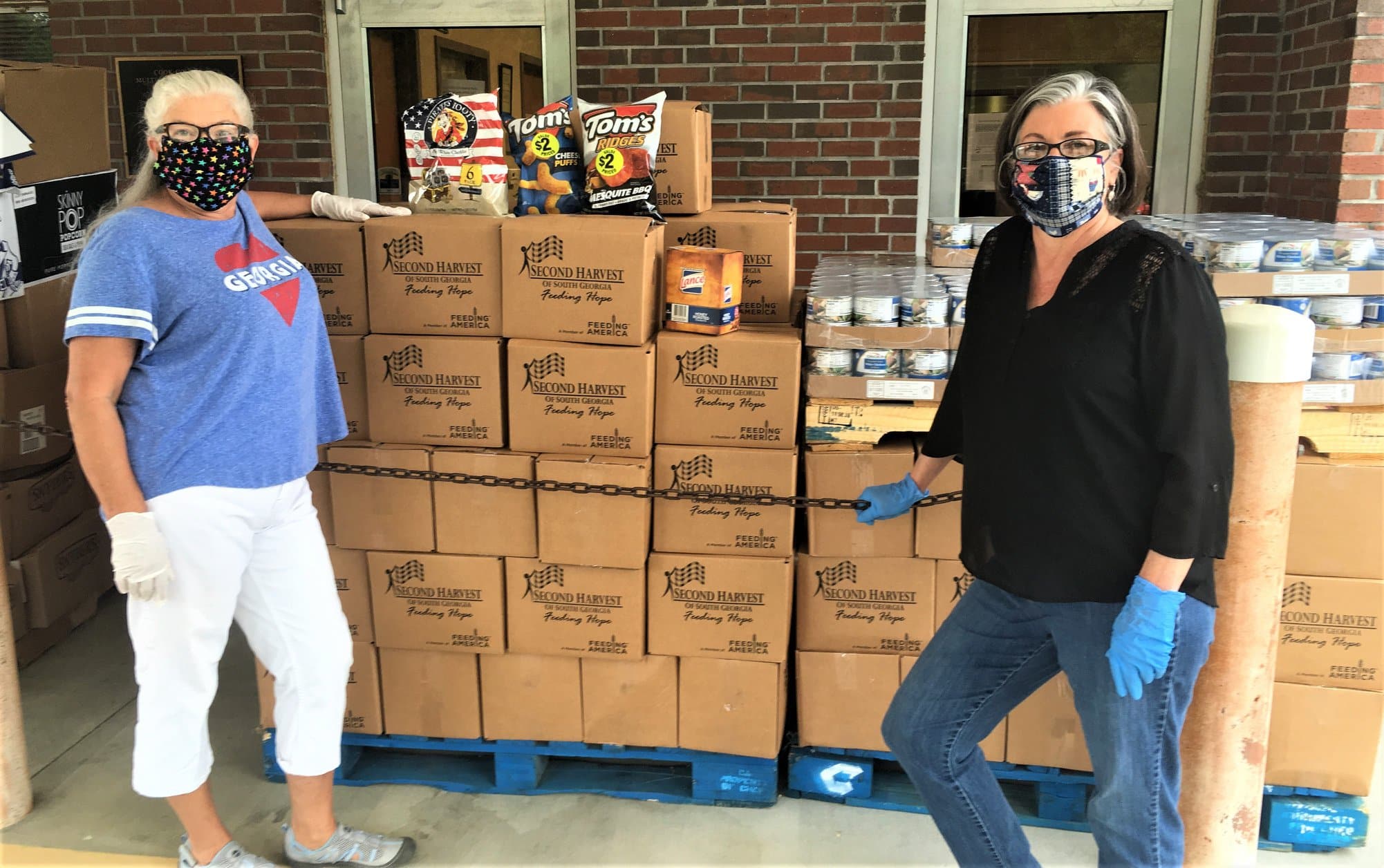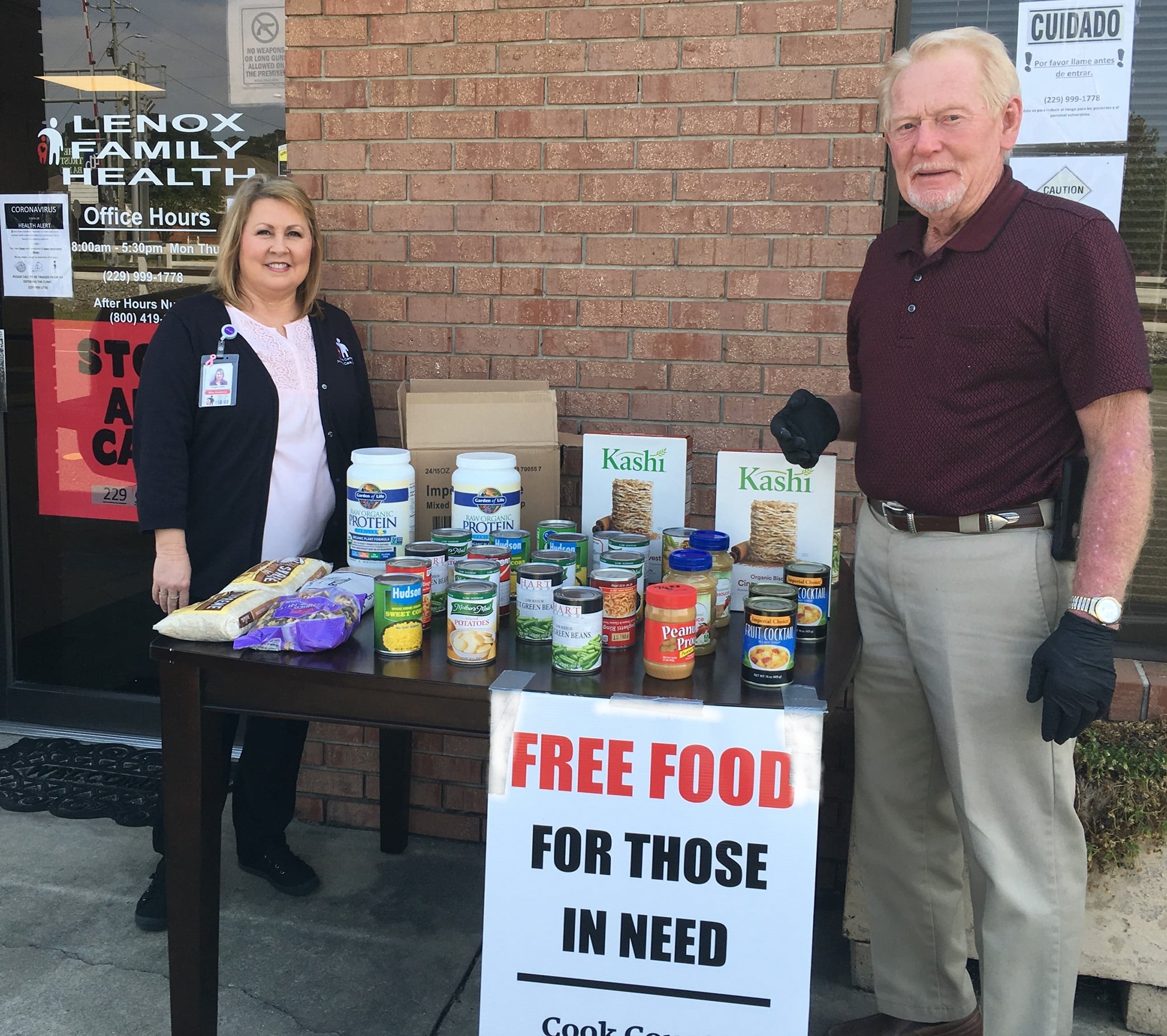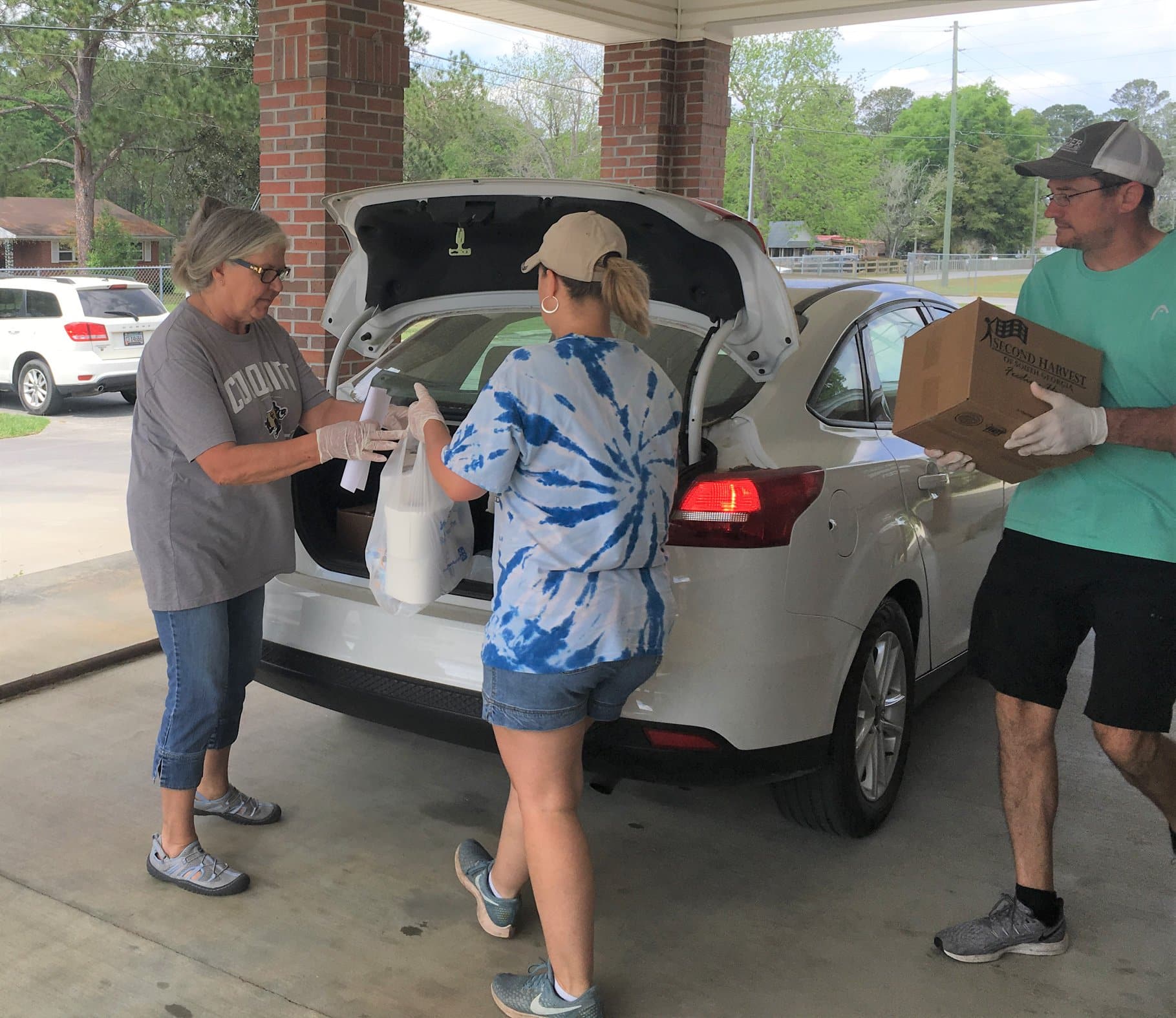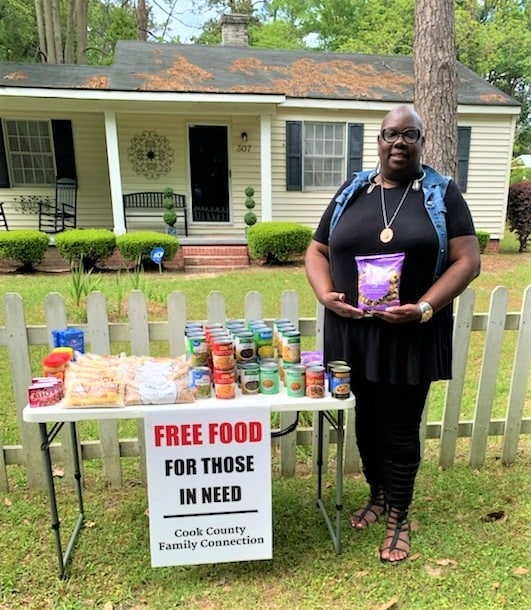Cook County Family Connection Grapples with Food Insecurity in the Midst of the COVID-19 Crisis

By Krystin Dean
Cook County Family Connection (CCFC) is working to keep the community healthy and fed by fostering safe, meaningful connections—especially for the county’s most vulnerable neighbors. When schools, food pantries, and service organizations started closing due to the COVID-19 crisis, CCFC focused efforts on emergency outreach to help families struggling to put food on the table throughout this pandemic.
“As more workers were laid off and businesses shut down, food insecurity became an issue for many individuals who had not previously struggled with hunger,” said CCFC Executive Director Zoe Myers. “Our Collaborative leaders made a commitment to provide as much emergency food and necessities as possible to help bridge the gap during the first several weeks of this crisis.”
The Collaborative has established five tabletop pantries for residents to collect free food staples provided by Second Harvest Food Bank and Grace Community Church. Five partners volunteered to manage the tables at their businesses spread throughout the county. Funding from a private donor will keep these stations stocked with at least 1,500 pounds of food for the next few weeks.

“We share an office with Cook Senior Center, so we witnessed the fear and worry of the senior citizens as the Center—where they usually receive daily meals—was forced to close,” said Myers.
CCFC has already distributed over 8,000 pounds of food and supplies to 80 low-income senior citizens, including:
- food staples, paper products, and hand soap from Second Harvest Food Bank;
- bags of fresh fruit funded by CCFC’s Senior Hunger Project grant; and
- fresh meats donated by Thompson Farms of Dixie.
The Area Council on Aging and local school system are providing van and bus transportation to deliver goods to those who are homebound and cannot utilize drive-through pickups.
“Our food projects in the midst of this crisis are proof of the power of collaboration. We contacted our local and regional partners to help, and were amazed by the response,” said Myers. “Our main challenge in this work has been logistical—ensuring physical distancing and safety. We’ve used no-contact methods in distributing food and supplies: drive-through pickups where residents stay inside vehicles, doorstep deliveries for senior citizens, and outdoor food tables where there’s no interpersonal contact.”

The Collaborative is also adapting to these unprecedented circumstances by working with smaller teams of volunteers who undergo temperature checks and are equipped with facemasks, gloves, and disinfectants. “While it’s a big job, we’re humbled to be able to meet critical food needs for folks who are struggling right now,” said Myers.
CCFC’s Facebook page has tripled engagement in the past few weeks as the Collaborative utilizes social media to connect community members to vital resources—and field questions regarding the county’s most pressing concerns.
“While we are publishing resources related to health services, food access, and educational resources,” said Myers, “we are also including information on child abuse, domestic violence, mental health, and other high-risk issues that are being exacerbated by this COVID-19 crisis.”

